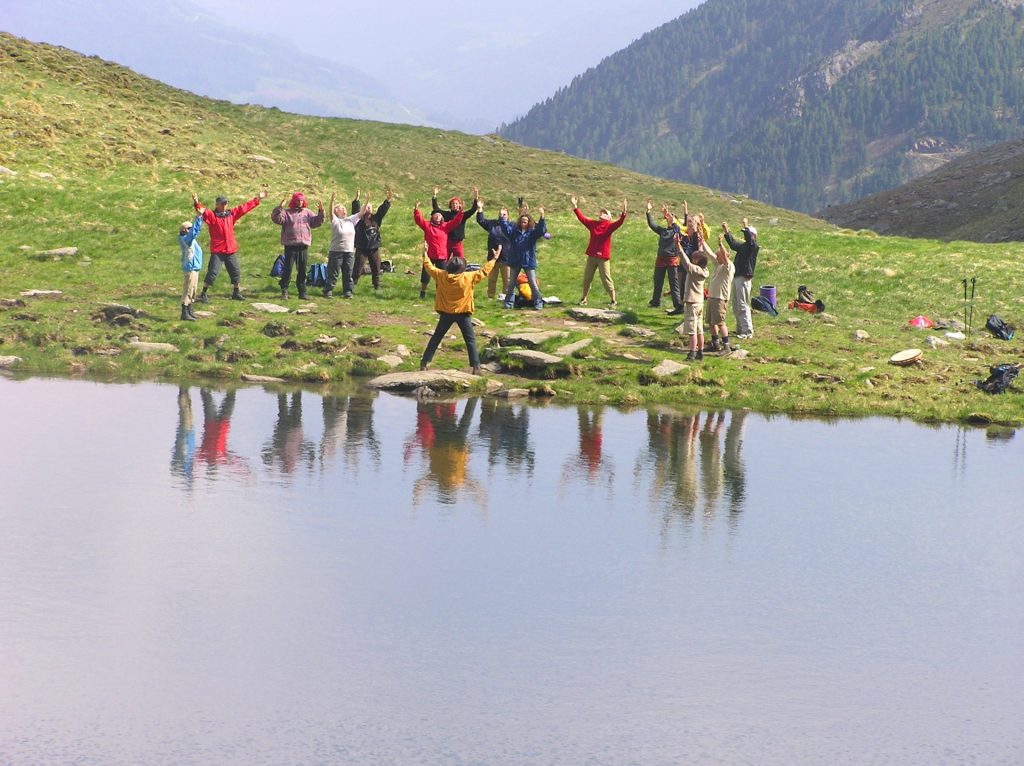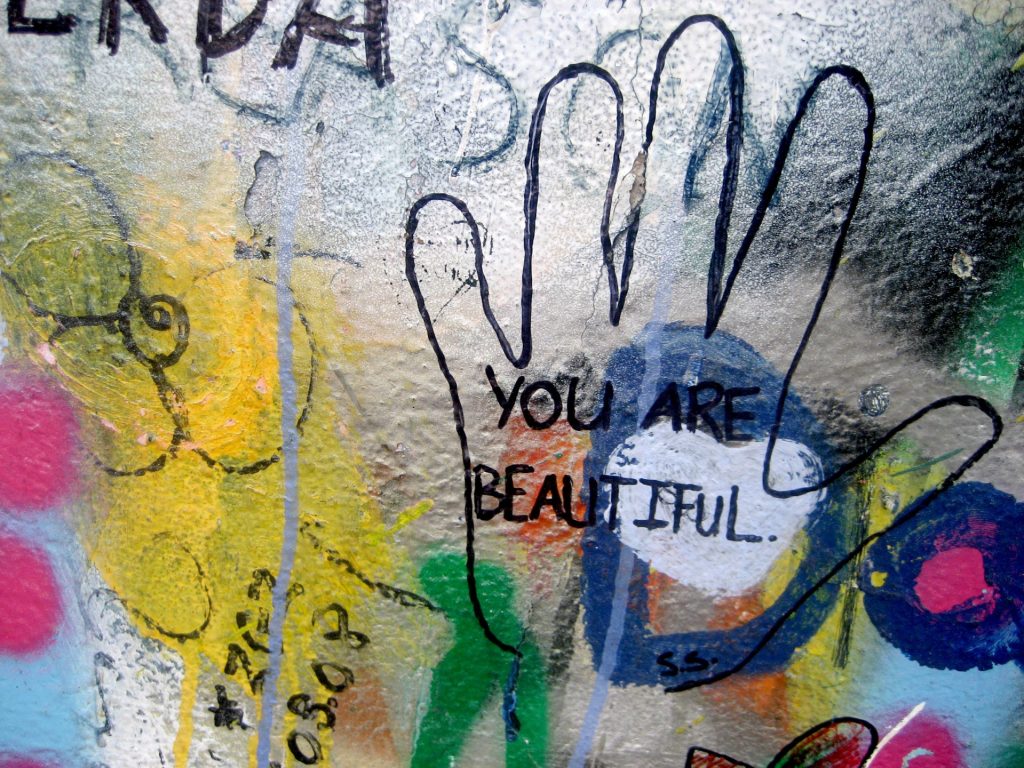
At Myself I look at myself in the mirror everyday- See how much humanity is left.

Takeaway Quotable Quotes ‘Whether or not you write well, write bravely. Write without fear and edit without mercy’ and quintessentially Hogwarts would have been alluring and enticing as the epitaph of Hagrid, ‘Hagrid has been known to befriend giant spiders, buys vicious three-headed dogs from men in pubs and sneaks illegal dragon eggs into his chamber’. Bernard Shaw’s heartfelt lines ‘The theatre should be a factory of thought, promoter of conscience, elucidator of social conduct, armoury against dullness and despair and a temple to the ascent of man. and Existentialist Beckett’s re-envisioning ‘Yes, yes, we’re magicians.’ benignly mainstream cognitive narratives.
I am writing in Ariel spirits surmising the incantation of Raphael and Gabriel as they are the epitomes of Archangels with their dukedom and kingdom. In multicultural and pluralistic sovereign global village epoch’s literary accolades and British Library’s Discovering Literature ‘treasure hunts and golden nuggets’ prospects echo the voice of transcended relationship between independent extension project work and non- examined assessments. Creative Writing and English Literature have mainstreamed their destinations with the stars of heaven. Eventually Dead Poets Society showcases personification of abstraction toward nebulous and mercurial film productions and movies adaptations integrating to the confederacy of theatre and performance studies. The scholastic and intellectual terrain and arena have gone to highlight features of romantic theory and critical traditions spotlight. Swedish universities offertory of diversity and variety stylistically and aesthetically bestows the upcoming prospective learners and apprentice pupils with the multifarious majors and minors. An Oxford graduate working in historic Shakespearean theatre and a Cambridge post-doctoral fellow with the essence of literary critique’s appetite have their fantabulous perspectives in demarcation with trademarks of legacy hallmarks.
I am not discoursing upon the issue of bleakish modernists’ cosmopolitan viewpoint in alluding to the harangues and tirades of social, political, economical, cultural phenomenon –the boudoirs, saloons, cafes, restaurants, pubs and taverns, attics and ottomans, chest drawers and closets and so on. They are today ,in fact, hackneyed notions of idiosyncrasies and that’s for sure. Why would I have to abandon reading Hardy’s harrowing pastoral landscapes and relegate Tess to be the subject of exploitation under ecocritical feminist perspectival regime. A damnable shit of effigy caricatures and frolicsome buffoonery would be succulent and amorphous rendering to the catering of farmyard’s hullabaloos banishment. William Golding’s ‘Lord of the Flies’ as skeptics critics venerate to be of utmost devotional subject in contextualizing modern times and whatsoever, whosoever, whomsoever might be gregarious to compare and contrast HG Wells’ ‘War of The Worlds’. I must profess the lionhearted proclamation and extoll the integrity of ‘Interpreting Undergraduate Research Posters in the Literature Classroom’. ‘Crystallization’ connotes exploratory critical responses and explanatory noteworthy arguments. Gabriel’s announcement in rendition to the poster presentation startles Ariel, compelling the fantastically misanthrope Caliban and devalues exhumation of sea-wayfaring, mystic recluse, maiden-mermaid Annabelle Lee. Caramelization of marmalades through ‘close readings, negotiations, integrations, theoretical generalization and aesthetic judgement’ awestruck wondrous magic and splendorous flora-fauna. Coffee conversations and beverage-interviews in addition to bookclubs and library workshops truly enchant poster sessions in the domain of public ‘peer-review and critique’. Perfunctorily declaimed by ‘negative silhouettes’ of ‘nihilism’ in Shelley’s Alastor-The Spirit of Solitude cannot be feigning throwaways of the decoupage disharmonizing of sublimity.
Netherworld tram accidents wouldn’t have banished my forlorn industrialized solitary life to exploded ashes if bequeathment of fantasy fiction prevailed in the earthy heaven’s halcyon amidst the solitude of Desdemona, Cleopatra, Ophelia, Sebastian, Juliet Echoed Recitals of Magical Charms-Enchantment of Harry Potter’s Glory!
My contemplative conscience cognition rekindles sparkling flames arousal in my imaginative faculty of the brain to be blessed by the revisiting Jibananda Das’s ghost-hobgoblin in my dawn of sunlight and dusk of twilight.
What if Jibananda Das’s Phantom Spirit Drank The Life Of Hogwarts and Hanged Out With Dickensian J.K. Rowling? Crystallized Me Living With The Frozen Muggle World and My Imaginary Voyage of Figurative Troupes; The Magic of Literature In Interpreting Harry Potter and The Philosopher’s Stone
Province of pedantic rhetoricians and their intellectual circle of linguists-and-literary critics and professional philosophers revival of interest in the classification and function of figurative language such as Sister Miriam Joseph’s Shakespeare’s Use of the Arts of Language [1947] and the bibliographical archive of M.H. Abram’s ‘Mirror And The Lamp’[1953].
‘Hagrid’s big hairy face gleamed over a sea of heads.’ Take another instance, ‘Hundreds of faces staring at them, [//] looked like pale lanterns, [//] flickering in the candelight.’’ Roman Jakobson’s highlight featuring spotlights ‘metaphoric’ or ‘vertical’ and the ‘metonymic’or the ‘horizontal’. In synecdoche [Greek for ‘taking together’], a part of something is used to signify the whole, or [more rarely] the whole is used to signify a part. In this enlightening glimpse ‘sea of heads’ could crave the treasure hunt in metaphorical synecdoche. On the issue of metonymy [literally change of name], the literal term is applied to another with which it is closely associated, because of contiguity in common experience. Would skeptics and cynics be compelled to sbift their pattern focal convergence and divergence into ‘pale lanterns flickering candelight’. So, we have here inviting banqueters with picturesqueness of marmalade porridge, Yorkshire puddings, apple pies, treacle tarts, chocolate eclairs and prosopopeia the Greek term of personification whereby inanimate object [lantern and candelight] and abstract concept [hundreds of faces] is spoken of as though it were endowed with human attributes and feelings [pale and flickering]. The meter of this line of poetry having iambic feet and the fixed or nearly fixed pattern of accented and unaccented syllables producing the pervasive rhythm. Inversions in iambic verse with the dispersion of troche.
[It is possible to distinguish a number of degrees of relative syllabic stress in English speech, but the most common and generally useful fashion of analyzing and classifying the standard English meters is to distinguish only two categories-weak stress and strong stress-and to group the syllables into metric feet according to the patterning of these two stresses]
‘The crystal trophy cases glimmered where the moonlight caught them’ and ‘A few embers were still glowing in the fireplace, turning all the armchairs into hunched black shadows. In this extended metaphor the tenor embers and arm chairs implicitly and figuratively transfigure, transform, or transmogrify ‘glowing’ and ‘hunched black shadows’. Embers and armchairs are literally different objects notably dissimilar, incongruous, unallied and impropriety of the material world and their tenor are adrift and abroad the vessel vehicle and work like noun, verb or adjective.
‘Although I was fond of blowing my own trumpet
Nonetheless I knew that a rolling moss gathers no stone;
Here I have embarked on my salad days
When I was green in judgement and cold in blood;
My self -the reed-that was too frail to survive the storm of its sorrows!!’
My laboratory handwritten manuscripts and the desktop typewriter
Shakespearean effigy lettered a caesura
‘‘Canst thou not minister to a mind diseased,
Pluck from the memory a rooted sorrow?’’
A gleam of delighted divination
A dawn of ethereal fortune
The stony pebbles pearly tides
thunderous rocky shores
Book of Psalms-My dreary refuge
that shuddered astrophysicists knells in extolls
‘The Lord is my rock, and my fortress, and my deliverer’
Is but a sustained metaphor
Every simile can be compressed into a metaphor and every metaphor can be expanded into a simile. Nesfield’s ordeal in parchment of enlivening and enriching figurative language through the implication of ‘informal or implied simile’. Except the marker of comparisons ‘like, such, as, so’. And so on and so forth, I cannot be lingering to prolong the discourse to the harbinger – cradle and grave mausoleum and sepulcher since the spirits of literary criticism in linguistics should be crowned wreathed. Or else this wondering and aweing notes would be a teaspoons of life’s journal annihilating the heart with a dagger!!
Jivananda my favorite Bengali poet laureate welcoming my Ariel’s wings-the freedom of liberty- in cordiality and joviality. Whilst the stalwart novelist Kavigurus’ Rabindranath sculpture flickers seashore sea shells in harmony’s nectarine tides and waves choreographing dysphasia. Ushered by the beverage hubbub, my poet counselor spiritual enchanter chanting ‘dysphasia’ which dumbfounds me. ‘Vulnerability and victimization encroaches my reading and writing of the brain totally or partially silhouetted by agraphia and alexia that elixirs would be dwelt later in neurolingusitics.
Standard British English –thevariety of a language with the highest status in a community or nation and which is usually based on the speech and writing of educated native speakers of the language. News media and literature, dictionaries and grammars, non-native speakers conservatory and English as a foreign language sanctuary … ‘Dotted here and there among the students, the ghosts shone misty silver.’ Reading this metaphorical figurative language from the Sorcerer’s Stone, Professor Jivananda Das exclaimed ‘Guffaw! You’ve been my student residing in the international hostel and I’d want you to perform this years’ phenomenal pageantry with endoglossic audio-visual method’.
‘Recorded dialogues picture sequences to language items and focusing on speaking and listening preceding reading and writing through discouragement of mother tongue usage and encouragement of behavourism and structural linguistics ’
‘’
thoughts on Bukowski – letter to a friend
I have read through some of your blog posts and I must say, have enjoyed the read… you said that you were involved in the “meat poets” …. ok… the only one of them that I know anything about is Bukowski and he was independent as much as a part of any school… I guess… anyway, I discovered Bukowski when I first read “Post Office” which I ran across in a book store, shortly after it was published… I loved the slice of life feel of the writing, the wry humor and the view from the bottom of the working class which is not overly represented in American Literature… I read his other novels as they came out and as I ran across them and picked up a few volumes of his poems as well… I don’t know that the poems amounted to much as “poetry” but they had the same lively style as the prose and were vigorously accessible and full of wit and humor… like the prose…
I was working at a factory printing telephone books at the time that I first ran into Bukowski’s writing… I was going to grad school as an English major, driving the hour plus to River Falls, Wisconsin for classes in the daytime and working full time nights printing telephone phone books… I got a lot of breaks during the job and would write my college papers as my rolls on the press wound down… and later, after I dropped out of grad school in the mid 1970s, I would spend the free time reading, writing and drawing with ballpoint pen on telephone book cover stock… I had been an undergrad art major at the u of Minnesota and had mostly learned from that experience that the world of contemporary art had no place in it for me or the artwork that I was doing and wanted to do… so, I went to grad school at River Falls as an English major… I was writing and submitting poetry regularly, at least one or two submissions a month, and was getting rejections on all of them… this pattern continued from 1970 to 1984 when I finally had a poem accepted for publication…
my job involved putting rolls of paper on a printing press the size of a house and I would write prose and poetry in my head while working and then write it down as my rolls ran down… I had no interest in contemporary poetry beyond Dylan Thomas and maybe a bit of Ginsberg… I had learned about poetry from my mother who’s taste went toward Alfred Noyes and Rudyard Kipling (from her father)… I had discovered the British romantic and Victorian poets and so was trying to be Blake, or Tennyson… updated with contemporary images… needless to say, the editors were not impressed… I did not save the ms when they came back to me… I figured that if the poems were not good enough to be accepted by an editor, they were not worth saving… so, by the time I started publishing, my poetry was one that would often incorporate half remembered or fully remembered images from a poem that had been submitted and tossed, into a new poem… thus, if anybody ever cared enough to read through my published work, there would be a to me interesting, repetition of words and images…
after the acceptance in 1984, I decided that I had proven to the world and to myself that I could write a poem that was good enough to be accepted by a prestigious literary journal (the “GW Review”)… and I decided to quit writing poetry… of course, within a few years, I was back to writing poetry again and submitting…. so I had my second poem accepted in 1994… after that, pretty much everything I submitted was accepted… so, I continued until the twenty teens when I really just stopped writing a lot of poetry… my poetry had changed and was no longer formal rhymed poetry, and I am not sure any of it has any literary merit, and even if it does, I am not sure that having literary merit has any value to the modern world at large… is writing a good poem as useful to the world as turning over a shovel full of dirt, or doing any other mundane task??? well, I don’t know… probably not…
so, anyway, I always have been a voracious and fast reader and when I would finish reading a book I liked, back in my printing press days, I would often send a fan letter to the author just to let them know that I had enjoyed the book enough to take the time to let them know… so, it came to pass that I wrote a letter to Bukowski, a fan letter, about one of his books that I had enjoyed… I remember that I wrote the letter while sitting on an ink can in my little nook, under a steel stairway, behind the “reel stands” of the old Wood Hoe, web fed telephone directory letterpress… the air would have been thick with paper dust, chemical smells and vaporized oil and oil based ink… the gigantic press would have been roaring like a freight train… I would mail a letter like that at the post office, on my way home from work at 7 a.m…
much to my amazement, a week or so later, I got a reply from Bukowski… a personal letter from the, by this time, famous author… I was excited about this and wrote him two more letters, both of which he responded to… I then thought that I had imposed upon the famous author enough and so did not write to him again…
I still enjoy reading Bukowski… I love biographies of artist for one thing, and his novels and to some degree, his poems too, read like autobiography, even though I know they are fiction… but the stories of being a great artist, mingling with the down and out sons and daughters of the working class gutters and bars have always been fun to read… I also enjoy Fante’, Celine and Hamsen et al and to some degree Hemingway, all of whom seem to be Bukowski’s progenitors… Is Bukowski a great artist?? I guess that is for history to decide… will people in our problematic future even read novels anymore??? I think they have already mostly given up on reading poetry… Hmmmm….
so, the only response I can really make to a statement like the above, is, of necessity subjective… I enjoyed and enjoy reading Bukowski… that is enough to me… so many in the poetry small press world seem to want to emulate Bukowski’s hard drinking life style… but little poetry of interest seems to come from this crowd… although, the myth of the intoxicated genius is one that was foisted on me by my own parents… who, in spite of the horrors that alcohol had wrought in our family, firmly believed that I could not be a real artist because I did not drink or use drugs… well, that is a myth that mostly pisses me off… I would not have liked being around Bukowski, I think, had I met him, as I have no patience for and little sympathy with people who are intoxicated… addicted and fucked up… I have no interest in telling other people how to live their lives, but when their bad decisions impinge on me, I reserve the right to walk away… as a child, I could not walk away, but I have not been a child for many decades now… so, I enjoy reading Bukowski but have no desire to live or write like he did…

My son in his thirties
I dreamed that I gave birth to a son in his thirties
A tall blond man
He went through all the plays in the nearby theater with me
He believed, like me, that poetry can save us a little more
He was telling me how happy he is
I held his hand and said I believe
How he cares about totally irrelevant stuff,
like most of the human race.
Hearts of girls he will take each day
The jacket he saw in passing, books to buy,
but he doesn’t have enough money yet.
I listened to him attentively
As men with a deep voice are listened to
While reciting poetry by the fire
I woke up
The announcer was announcing on the radio
Several new world disasters
I touched my stomach
And he reciprocated.
Revolutionist
He was a revolutionary man
He waved from the top of the frenzied village
I invented a woman who flies
I see her every night
I make her womb out of wet clay
And a couple of kisses.
I breathe into her the joyful rain
Then, when it flies away, I shout with all my might
That I love her
Nothing ever came out of it
Except my rust.
What are you missing today?
Power cube
Legs that will carry you
Although the bones remain inside
You will leave all other phenomena
Trapped on the shelves
What are you missing today, when you don’t have time to think
About the soul, happiness, aspirations, not even about suffering
Like recycled material, you smell of use value
A factory woman with an apron over her swollen, congenital stomach
Adds colorful blocks to the leather boots of the A series
Bare-handed and barefoot rows across the sea.
Welcome to a fresh month of Synchronized Chaos!
First of all, Synchronized Chaos stands with all those affected by the recent earthquakes in Turkiye and Syria. We encourage all who are able to contribute to the relief efforts, which you may do through the Red Crescent or other worthy organizations.
There is a virtual literary benefit reading hosted through Words Without Borders on Thursday March 9th at 1pm EST.
This online fundraiser with contemporary international authors and translators aims to raise funds to aid relief efforts and demonstrate solidarity with the Syrian, Turkish, and Kurdish people affected by the disaster.
Organized by Words Without Borders and hosted by author Merve Emre (writer and scholar, Turkey/USA), the fundraiser will feature Laila Lalami (novelist and essayist, Morocco/USA), Orhan Pamuk (novelist and essayist, Turkey), Maureen Freely (translator from Turkish, USA), Sema Kaygusuz (novelist and playwright, Turkey), Nick Glastonbury (translator from Turkish and Kurdish, USA), Elif Shafak (novelist and essayist, Turkey/UK), Bachtyar Ali (novelist, Iraq), Kareem Abdulrahman (translator from Kurdish, UK), and others to be confirmed.
Please join us online (Zoom) on Thursday, March 9th, at 1 pm/New York, 6 pm/London, 8 pm/Gaziantep & Aleppo.
Also, please come out to Synchronized Chaos Magazine’s in-person event, held during the Association of Writing Programs’ conference, Thursday March 9th at 6pm at Ada’s Technical Books in Seattle.

During the pandemic many of us came to miss browsing in bookstores and libraries. The experience of scanning and flipping through books that we wouldn’t ordinarily order for ourselves, but which catch our eye and we find ourselves fingering, flipping, reading, and then checking out and buying.
This reading creates an ‘audible browsing’ experience by presenting readers who are published authors in a variety of genres. This includes mystery, romance, poetry, memoir, drama, literary and international fiction.
Also, our friend and collaborator Rui Carvalho reminds us about our Nature Writing Contest for 2022.

This is an invitation to submit poems and short stories related to trees, water, and nature conservation between now and the April 1st, 2023 deadline. More information and submission instructions here.
In this issue we see pieces where people grapple with their self-concepts. Some people search their souls for deeper understanding, others focus entirely outside themselves, and still others process their thoughts and emotions through interacting with the outside world.
Chimezie Ihekuna kicks us off with song lyrics about claiming one’s selfhood and confidence.
In Brian Michael Barbeito’s lush, detailed poems, narrators lose themselves within elemental wildness. He also contributes immersive photographs that aim to capture the spirit and feel of locales, focusing on the observed and hiding the observer.

Bill Tope’s prose poem also takes readers up and out of themselves and out into a richly imagined nostalgic fishing trip with his grandmother.
Channie Greenberg’s artistic renderings of flowers capture their exuberance, in work that takes a turn towards abstract expression. Claudio Parentela highlights the details of slightly comedic scenes through color and black and white renditions.
Mesfakus Salahin evokes a love that pulls the speaker out of his own life into union with nature and his beloved.
Sandro Piedrahita’s story explores how one might atone for a heinous crime, through shifting one’s focus away from selfishness towards humble service to others for its own sake.

Sayani Mukherjee’s poem describes an intense spiritual quest and how her faith survives her search and questioning.
Z.I. Mahmud’s essay highlights the role of philosophers who were both spiritual mystics and humanists in shaping Indian culture. They were able to both address and transcend the human condition.
Gail Thomas highlights how various iconic songs have helped her to process her grief, explaining how music can be at once personal and universal. J.J. Campbell, a writer and caregiver, speaks to many universal human griefs and emotions: loneliness, lost love, aging, and tradition.
Doug Hawley handles common human experiences – surviving the natural elements, braving the dating world, aging and illness – through humor. Noah Berlatsky spoofs self-help culture through an elaborately constructed re-envisioning of Jordan Peterson’s advice to men.
L. Wayne Russell speaks of pursuing and finding art and inspiration above all else, whatever his human circumstances.

Daniel De Culla sends up a fanciful poem about shapeshifting: a poet with a hat that changes into a whimsical pumpkin.
Mark Young cleverly amuses us with “mail deliveries” that involve linguistic wordplay while Grant Guy breaks poetry down into its essential elements to explore what those elements are.
Vernon Frazer connects a lot of words and ideas together to experiment with meaning and thought. J.D. Nelson invites us to experience words and punctuation in fragments and ponder their possible meanings.
J.K. Durick evokes how life’s experiences can play with our senses of time and space.
John Grey creates humorous character sketches of people and relationships with generosity of spirit.

John Culp conveys the joy of reaching full intellectual and emotional understanding with another person, being fully and mutually seen and heard without either person having to lose themselves in the relationship.
Itzel Perez-Alarcon points out how the childish games that people play with each other can recall memories that undermine our sense of self.
Bilatu Abdullahi renders the loneliness, rage and grief of a spurned lover, who could be a person, a country, or the earth itself. Maurizio Brancaleoni speculates on whether humanity will be able to do enough to ameliorate the destruction of endangered species and disempowered humans.
Mahbub laments the natural and human tragedies of our current world, but then points to our heritage of honoring love between people to suggest that we may yet make it forward.
Christopher Bernard remembers his partner of many years through an elegant meditation on an empty table setting. Emina Delilovic-Kevric speaks to family love that perseveres after wartime, even in the face of losses.
In his thoughtful poem, Faroq Faisal quickly reminds us that we are mortal.

Some contributors take the focus off of themselves by writing about a highly researched topic.
Terry Trowbridge stares intently at a single jalapeno, discovering the mysteries of the universe in a pepper. Corey Cook highlights one intense image, of a tiny bird or a candle flame, and calls us to leave our own psyches and meditate on that.
Russell Streur explores the intimate relationship between poetry and pottery in Japan a few centuries in the past.
Masharipova Bakhor Ixtiyor provides an overview of the bakery products of Uzbekistan, while Kojamuratova Aygul urges Uzbekistan’s criminal justice system to distinguish between one-time and repeat offenders for public safety.
Taylor Dibbert’s poetic speaker steps beyond his own psyche in a simpler way: love and gratitude for his faithful dog.
We hope you enjoy this issue’s depth, joy, grief, thought, and nuance.
Contribution of spiritual leaders to the development of India
Adherent to spiritualism and mysticism, Rabindranath Tagore, the Nobel literature laureate of the Renaissance Bengal is famed to be enthroned as the Indian Shakespeare. Literary acclaim and widespread popularity of visionary Rabindranath Tagore’s incredible contribution as a mystic can be a wondrous marvel that strikes emotional socialists’, sensational spiritualistic, sentimental moralistic and humane philanthropists’ psyche from orientalism to transatlanticism. As luminary, Graham Greene, the twentieth century English writer and journalist, proclaims of Tagore’s majestic magnificence and glorious brilliance of the visionary eyesight symbolic to ‘Chesterton’s bright pebbly eyes’ ;so hithertofore therein is indeed indicative of the vindictive testament exclaimed by poetic lines of Even Anna Akhmatova. Even Anna Akhmatova’s admirable appeal for translation of Tagorean canon springs from exaltation of “that mighty flow of poetry which takes its strength from Hinduism as from the Ganges, and is called Rabindranath Tagore’’. Rabindranath Tagore’s mysticism and asceticism surmounts the Indian myths and legends, folklore and folktales, hymns and lyrics, vernaculars and dialectics, narratives and discourses to a greater extent ascension and publicity amidst William Butler Yeats and Ezra Pound.
Rabindranath Tagore’s philosophical theology centers heralding non-sectarianism and communal harmony and humanistic peaceful dwelling influencing the different parts of the Indian cultural background. A sage-like visionary poet whose existential influence for a millennia amongst Europeans as Schopenhauer in the New Testament critically appreciates, “A Tagorean Christ transforming morals into asceticism, its pessimism and its avatar.”
The Sanyasi of high intellect, action and devotion ennobled Rabindranath Tagore to encourage inspirational reads which have nothing pessimistic but optimistic guidelines in harnessing knowledge of India: “divine unity of existence and unity in diversity”. Subhas Chandra Bose’s enthroned Vivekananda as the spiritual teacher and Mahatma Gandhi hailed enshrining Viekeanada works to be a treasure trove in reawakening feelings of patriotism, nationalism and world peace to a thousand fold. Spiritual resources of Vivekananda have uplifted motherland India and her fellow citizenry to be safeguarded in the brink of disillusionment :harbinger of challenges to circumstantial debacles hindering Hinduism and spirituality.
Motherland India is the destination of harbourage and anchorage to multifarious backgrounds of microcosmic racial ethnicities, diversified culturalism, egalitarian and platonism to Swami Vivekanada-the cyclonic monk of Hinduism. Vivekanda exults in commendation and applauds of varieties of socio cultural linguistic and diasporic communities of faith in prevalence of mutual tolerance, great heartedness, broad-mindedness, liberal understanding, acceptance of brethrenship and fraternity’s fellow-feelings. Destitution of privation and refugeeship of geopolitical crises arouses empathy and sympathy to this nobly humanistic personae and, therefore, he pledges destitute and refugees rehabilitation within the society: enlightening society enlarging provisions, hearths and altars to be bereft of exilement, banishment, alienation, solitary confinement or forlorning isolation. In this regard, communalism, superstition, fanaticism, fundamentalism and debacle of social evils should be promptly and vigilantly eradicated with valiant resoluteness and brave-heartedness. “God”, “Allah”, “Jehovah”, “soul”, “love” are integrated in unison by sermoniser Vivekanada’s preachings universalistic genesis of Hinduism integrated in unison by sermoniser Vivekanada’s preachings universalistic genesis of Hinduism. Referring a letter to the famine devastated Muslim aborigines Vivekanada imperatively advised Swami Akhandananda in vouchsafing and safeguarding the Muslim community of the Murshidabad orphanage against religious conversion.
Espousal of the cradle tales of Hinduism embedded in the civic and national lives the charismatic quintessence of being a Hindu refers to “A Hindu is a person who regards this Land of Bharatvarsha from the Indus to the Seas as his Fatherland as well his Holy Land and the land of his religion.” Awakener of the soul and the wayfarer of Northern India Swami Vivekanada is reportedly to have seen by Sister Nivedita in utmost reverence and solicitude of aboriginal nativity in ascension of foreign climes and environs. “…I had seen him in India, dressed in the two garments of simple folk, sitting on the floor and eating with his fingers, so, equally without doubt or shrinking, was his acceptance of the complexity of the means of living in America or France” In today’s era of digital and virtual live sessions yoga and meditation transmutate with variations in their clothing garbs of their closets and wardrobes. These boisterous folks have adopted their meaning of lifestyle concerned with forks and knives in the very transcendental English society and the westernized culture. To Vivekananda, the love of Hindutva is pristinely engrossing in embellishment of the Divine within the self in case of different socio-economic strata prevalent; ie aristocratic multimillionaire or imperialist and exploited or oppressed. Heralding humanity and harnessing humility Vivekanada disgraces and disdains apartheid of race culture and upholds the divination of spiritual beings as ancestry originating in the white-skinned Aryan, yellow-skinned Mongolian and black-skinned Negroid.
Viveknanda’s motherland India is the cavern wonderment of meditation and reflection which is nowhere else to be found. “Oh I know I have wandered over the whole earth…but in India I have looked for nothing save the cave in which to meditate!” “But the sannyasin no longer needs to worship, or to go on pilgrimage, or perform austerities. What then, is the motive of all this going from pilgrimage to pilgrimage, shrine to shrine and austerity to austerity?” Whs- can this heavenly idealogue be chanted in a dialogue amidst prophetic and visionary Rabindranath Tagore during the later stages of his life in Victoria Ocampo’s hearty hearth? Vivekananda’s Victoria Ocampo foils as orchestrated by the portrayal of a ‘Western Woman’[Sister Nivedita] in whom, charity’s endowments bestowal ensues with happenstances of observing ‘’…that quiet giving, always to the right person in the right way, at the right time, and never making a mistake…”
Starstruck, awestruck and wonderstruck Swami Vivekanada and Rabindranath Tagore voyagers of the distant starlit sea in pursuit of charismatic spiritualism’s quest. They have a glare of serendipity and sanguine to pour into the wounded bosoms the love of universal brotherhood, fraternity of siblinghood and unconditional camaraderie.
The High Priest of Internationalism and the One Man Ambassador of Culture, Tagore’s indianness is allusive to the ascetics with the abolition of disunity…and, therefore, from bridging to conquering the hearts of the people… between the East and the West, old and new, nationalism and internationalism, knowledge and power, art and literature “Honeyed the heavens,honeyed the dust of the earth, this is the great fulfilling chant of life, I have received and treasured in my heart.” Visiting the Buenos Aires isles and seashores, seafaring hospitality of Victoria Ocampo, the devoted admirer of the wayfarer traveller, Rabindranath Tagore’s Sadhana, proclaims, “Eyes see only dust and earth but feel with the heart, and know pure joy.” Heraldry of fortuitous bond evolved between the mindscapes of Asian and Latin American landscapes through prophetic sage or visionary ambassador or ascetic diviner Gurudev Rabindranath Tagore and the ambrosia enchantress Argentina’s lady. And the end of the discussion of spiritual contribution in the development of India truly enchants, enlivens, enlightens, entices, engrosses the gentry bereft of bigotry and sectarianism in awed admiration of faith: Donning a prophet’s robe and preaching sermon from the pulpit Tagore’s advises “Faith is the bird that feels the light when the dawn is still dark.”
To the spirit of spiritual Indianness depicts the universal outlook of liberal mind and tolerance of dissent, of the unfamiliar and even of the wayward and sympathies transcending race, religion and nation. Penchant of loves leads to triumphanal Bhakti since Swami Vivekananda implies, “Books and learning, yoga and meditation and illumination- all are but dust compared with love.” Love withholds the vainglory and prompting austerities of ceremonials but love bestows relief and charity to feed the starving masses or famine afflicted downtrodden. In Vivekananda’s repertoire, spiritual enlightenment and dreamy mystic benevolence envisionings to the ascetic upliftment ablaze luminosity in these quotable dialectics, “I love the poor, the ignorant, the downtrodden, I feel for them— the Lord knows how much… I do not care a fig for human approbation or criticism.” and this declarative further reechoes Vivekanada’s letter to the swami famine of Rajputana [“No god will come of sitting idle and having princely dishes and saying “Ramakrishna, O Lord!.. You must give your body, mind and speech to the “welfare of the world.” You have read—… . God, look upon your father as God”—-but I say—”the poor, the illiterate, the ignorant, the afflicted let these be your God.” The wonderful saints or avatars encompassed Hindustan to alleviate the affliction and elevate the freedom strugglers “through the powers of insights into the human hearts and lifted it off”.
Further Reading and Bibliography
1. An Aspect of Tagore’s Criticism In The West: The Cloud of Mysticism, Asian Studies Center, Author: Nabaneeta Sen, Michigan State University Publishers, Source: Mahfil 1996, Volume. 3 No. 1, pages: 9-23
2. West Meets East: Tagore On The Banks of The River Plate, Author: Victoria Ocampo, Source: Indian Literature, April-September 1959, Volume 2, No. 2, pages: 13-22
3. Tagore: The Oriental and Modern, Author: Prabhakar Machwe, Source: Indian Literature, September-October 1976, Volume 19, No. 5, pages: 80-94
4. Guru To The World The Life and Legacy of Vivkenanada, Ruth Harris Winner of the Wolfson History Prize, Professor fo European History University of Oxford,
4. Rabindranath Tagore, Authors: Maria Renee Cura, Source: World Affairs, The Journal of International Issues, Volume 9, No. 2, Summer 2005, pages: 131-139, Kapur Surya Foundation Publishers
Bloom
Burning up and down
Like the highest peak can’t be touched down
My dolce et petition
My sweetest devotion
Cracked open
I made my religion break open
Through cracks and bones
Amongst midnights and alleyed bones
Little fragile heart at my doorstep
Visiting my underworld stairway
My heavenly coldness
Crowns in my living room way
The porched open house
Little graffiti artistic pursuit
Of my hotspot on the opened door
Aside from the bottom line
Made my phone book worthy
Like living waters
The transparent ghost
My front porch open window
Burning lilies hanging open
My superbloom my resilient religion.